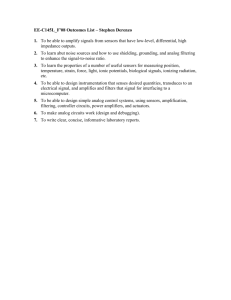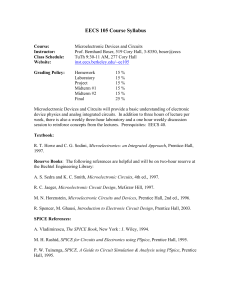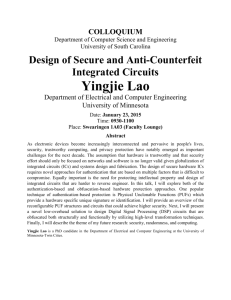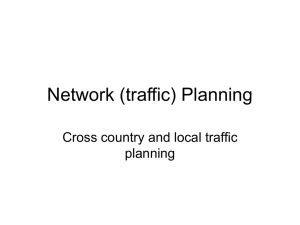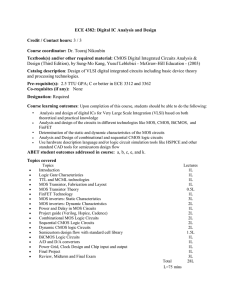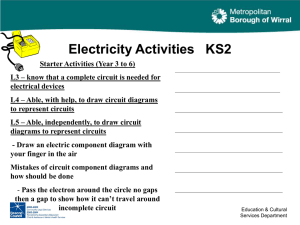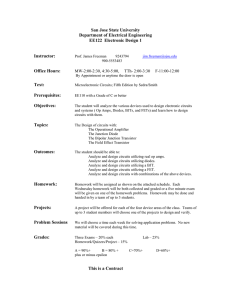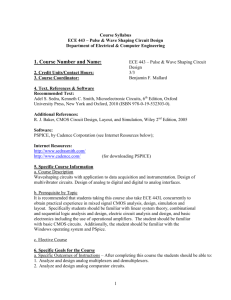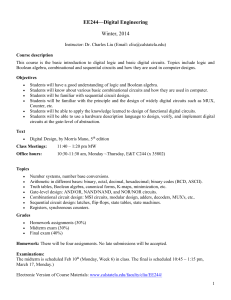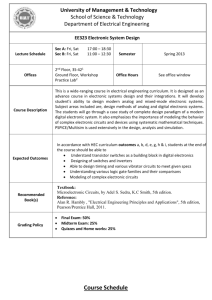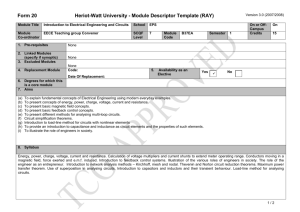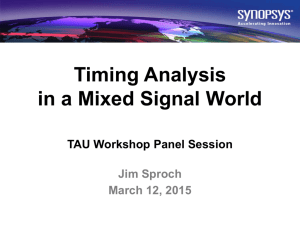EE140 Linear Integrated Circuits Course Outline - Spring 2006
advertisement
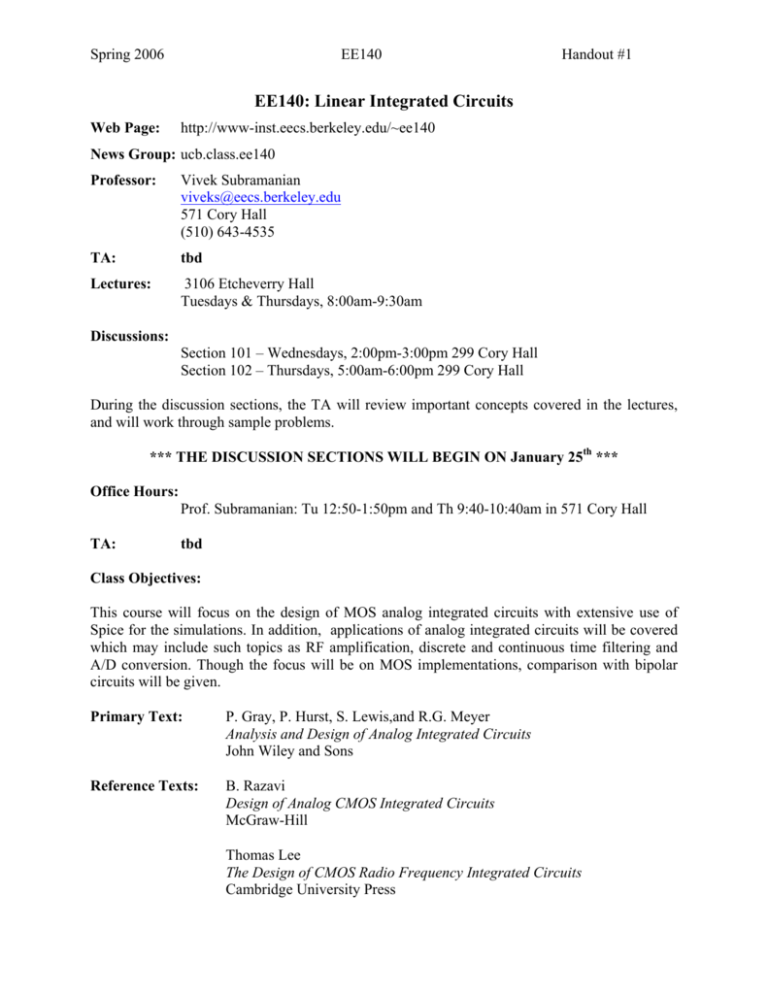
Spring 2006 EE140 Handout #1 EE140: Linear Integrated Circuits Web Page: http://www-inst.eecs.berkeley.edu/~ee140 News Group: ucb.class.ee140 Professor: Vivek Subramanian viveks@eecs.berkeley.edu 571 Cory Hall (510) 643-4535 TA: tbd Lectures: 3106 Etcheverry Hall Tuesdays & Thursdays, 8:00am-9:30am Discussions: Section 101 – Wednesdays, 2:00pm-3:00pm 299 Cory Hall Section 102 – Thursdays, 5:00am-6:00pm 299 Cory Hall During the discussion sections, the TA will review important concepts covered in the lectures, and will work through sample problems. *** THE DISCUSSION SECTIONS WILL BEGIN ON January 25th *** Office Hours: Prof. Subramanian: Tu 12:50-1:50pm and Th 9:40-10:40am in 571 Cory Hall TA: tbd Class Objectives: This course will focus on the design of MOS analog integrated circuits with extensive use of Spice for the simulations. In addition, applications of analog integrated circuits will be covered which may include such topics as RF amplification, discrete and continuous time filtering and A/D conversion. Though the focus will be on MOS implementations, comparison with bipolar circuits will be given. Primary Text: P. Gray, P. Hurst, S. Lewis,and R.G. Meyer Analysis and Design of Analog Integrated Circuits John Wiley and Sons Reference Texts: B. Razavi Design of Analog CMOS Integrated Circuits McGraw-Hill Thomas Lee The Design of CMOS Radio Frequency Integrated Circuits Cambridge University Press Spring 2006 EE140 Handout #1 Deliverables: 1. Homeworks will be assigned approximately every Thursday and will be due the following Thursday in class. Late homeworks will not be accepted. 2. There will be 3 design problems over the term which consist of designing an assigned circuit to a set of specifications and testing it in SPICE. These problems will test your ability to apply the basic circuit concepts towards a practical application. This will be done in groups of two and each project partner will receive the same grade. The weightings of each problem as a percentage of the full grade will be 5%, 10%, 15% These design problems will last over at least 2 weeks and will be in series with the homework assignments. Further information about these projects will be given during the term. 3. There will be a 1 1/2 hour midterm and a 3 hour final. The exams will test your ability to rapidly analyze simple circuits. Emphasis is on an intuitive understanding of circuit operation and the ability to make appropriate simplifications in the analysis. Grading Midterm: 20% Homework: 15% Design Problems: 30% Final: 35% Course Syllabus & Schedule Week Dates Topics 1 1/17, 1/19 MOS Device Models 2 1/24, 1/26 MOS Single Stage Circuits, Differential Pairs 3 1/31, 2/2 Current Sources, Active Loads 4 2/7, 2/9 Output Stages 5 2/14, 2/16 Operational Amplifiers – Low Freq. Analysis 6 2/21, 2/23 Operational Amplifiers – cont’d 7 2/28, 3/2 Frequency Response 8 3/7, 3/9 Frequency Response – cont’d MIDTERM (Tentative) 9 3/14, 3/16 Frequency Response – cont’d 10 3/21, 3/23 Feedback 11 SPRING RECESS 12 4/4, 4/6 Feedback – cont’d 13 4/11, 4/13 Stability and Compensation 14 4/18, 4/20 Filters, Applications 15 4/25, 4/27 Project Discussions and Special Topics 16 5/2, 5/4 Wireless Circuits, Course Review 17 5/9 Course Review Text Chapters 1 3 4 5 6 6 7 7 7 8 8 9 12
